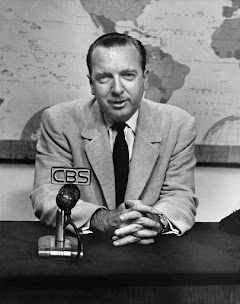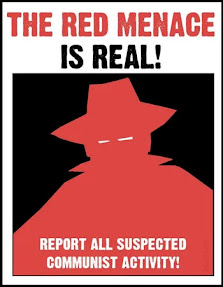Walter Leland Cronkite Jr., more commonly known to the public as Walter Cronkite, was one of the bravest, most determined, and most legendary American journalists of all time. He made it a priority to deliver the truth to America, rising to fame as a war reporter and later, a CBS anchorman. His dedication to the field of journalism earned him an Emmy called the Governors Award and a new award in journalism was named in his honor. He was even famously dubbed, "the most trusted man in America" by a political poll created by Oliver Quayle in 1972. Walter Cronkite was truly the people's journalist.
Thursday, May 4, 2023
EOTO #4: Walter Cronkite
Hard Times, and Harsh Luck: Analyzing Government vs. Press Through Cinema and Current Issues
The first amendment to the U.S. Constitution reads, "Congress shall make no law respecting an establishment of religion, or prohibiting the free exercise thereof; or abridging the freedom of speech, or of the press; or the right of the people peaceably to assemble, and to petition the Government for a redress of grievances." The same government that granted its people the freedom of the press and the freedom of speech has been cracking down and trying to silence journalists for years. Oh, the hypocrisy! This would not be the first time that the government has made an attempt to steer the public eye wrong and feed them misinformation, and sadly it will not be the last.
After viewing the film, Good Night, and Good Luck directed by George Clooney, I have come to realize that things are not so different in the present from how they were in the past. The film revolves around the idea of the "red scare", which was brought about by Senator Joseph R. McCarthy, whose ideology later was given the term McCarthyism. Although there is no current "red scare" or a widespread fear of communism in America, I do see two parallels when it comes to dramatizing the news and creating fake narratives. One parallel may use these aspects to strike fear in people and/or to turn them against others. Another parallel may use these fake narratives and dramatization to make someone or something appear more likable to the general public in an attempt to create a sparkling reputation.
“Sweatpants are a sign of defeat. You lost control of your life so you bought some sweatpants.”
“If you do not want to be pulled on the pants, do not become a model! Join the [convent] instead, there will always be a place for you at the convent. They recruit, even!”
“My only ambition in life … is to wear size 28 jeans.”
If it wasn't clear, Karl Lagerfeld was also well-known to be fatphobic. He once commented that "no one wants to see curvy women", and mocked other celebrities like Adele and Heidi Klum for being too fat or too heavy. He also seemed to promote eating disorders, claiming that anorexia nervosa was not as dangerous for women as junk food and sitting in front of the television in an interview with Channel 4 News. Contrary to these comments, Lagerfeld's models and muses adore him, fashion houses praise him, and the Metropolitan Museum of Art chose to give him his own Met Gala theme in his honor. Many celebrities also spoke highly of Lagerfeld in their interviews while showing off their themed designer outfits.
One interview stood out to me, as it told a different story and painted Lagerfeld in a more negative but truthful light. Stella McCartney, a talented fashion designer herself and Paul McCartney's daughter, had little to say to praise Karl Lagerfeld, and by little I mean nothing at all. She recalled a comment of his from a conversation the two had in 1997 while being interviewed by Saturday Night Live's Chloe Fineman. McCartney replied, "My favorite moment about that — and it's when I felt that I truly arrived — is when Karl found out that I had taken over as successor to the brand, his quote was, 'I knew they would take a big name when I left the brand, but I thought it would be a big name in fashion, not in music.'" Lagerfeld was putting an emphasis on McCartney's nepotism baby title, as she is the child of a former Beatles member. Undermining McCartney's solo success is definitely not a good look for Lagerfeld.
If I were to give the current era a name, I would call it, "the shrug era". From what I am aware of, and in my opinion, the current government has given up on doing what is good and suitable for its people. The government, rather, has turned to acting out of pure greed and revolving around the idea of what's in it for them long-term. Why have I chosen to use the word shrug, you may ask? The government has continued to disregard and shrug off problems that, if not solved and at the very least looked into, have the potential to destroy not only the structure of American democracy but even the world.
One prime example is The Willow Project. President Joe Biden approved and proceeded with the project despite environmental activists' growing concerns about how it will negatively impact climate change. It involves drilling copious amounts of oil from Alaska over a thirty-year-long period. Apparently, the amount of oil getting drilled over time will cause a tremendous buildup of carbon pollution equal to putting two million gas-powered cars on the roads. The fight to end climate change appears as though it has devolved into the fight to keep it.
There are plenty of other examples of the government shrugging off issues. For instance, Roe v. Wade, a case made to protect a woman's right to an abortion, was recently overturned. The original decision of the case in 1973 ruled that since personal privacy and certain freedoms are a part of the U.S. Consitution, a woman's choice of whether to continue or terminate a pregnancy should also be considered one of those freedoms.
Sources
https://www.cnn.com/2023/03/14/politics/willow-project-oil-alaska-explained-climate/index.html
https://www.eisenhowerlibrary.gov/research/online-documents/mccarthyism-red-scare
https://www.npr.org/2023/03/23/1165579717/tiktok-congress-hearing-shou-zi-chew-project-texas
https://www.cnn.com/2023/03/25/tech/tiktok-user-reaction-hearing/index.html
https://www.harpersbazaar.com/uk/fashion/a36092219/met-gala-theme/
https://pagesix.com/article/karl-lagerfeld-most-controversial-quotes/
https://time.com/6275632/why-the-met-galas-karl-lagerfeld-theme-is-controversial/
https://www.youtube.com/watch?v=Qh7tTta9JaY&list=UUTrQ7HXWRRxr7OsOtodr2_w&index=4
https://people.com/style/met-gala-2023-awkward-moment-chloe-fineman-stella-mccartney-video-watch/
EOTO #4: Walter Cronkite
Walter Leland Cronkite Jr., more commonly known to the public as Walter Cronkite, was one of the bravest, most determined, and most legenda...

-
Walter Leland Cronkite Jr., more commonly known to the public as Walter Cronkite, was one of the bravest, most determined, and most legenda...
-
Gonzo journalism introduced a brand new, never-before-seen method of writing and reporting. Hunter S. Thompson was labeled as the father of ...
-
The minute I saw Robert Downey Jr. appear on screen, consider my attention grabbed. Of course, the plot of the film itself was intriguing, b...


















